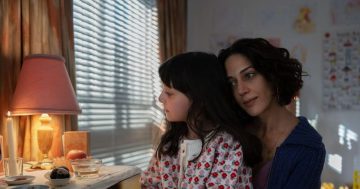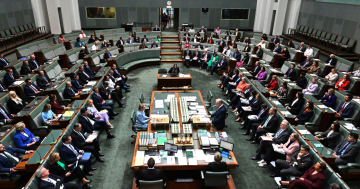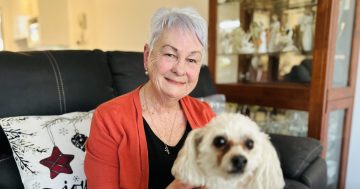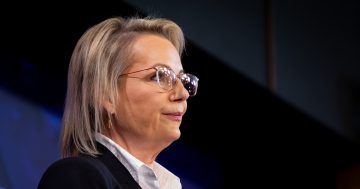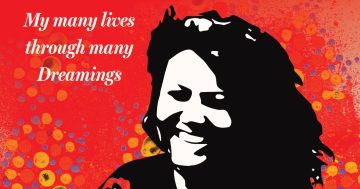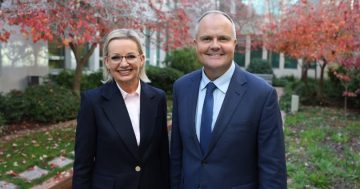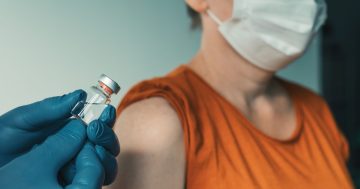Angela Priestley* examines why women with children find it hard to play a representative role in Australian politics.
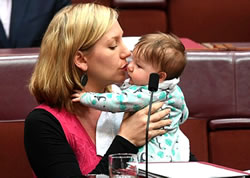 I loved seeing motherhood celebrated in the campaigns of women running for office during the 2018 US midterm elections.
I loved seeing motherhood celebrated in the campaigns of women running for office during the 2018 US midterm elections.
Some candidates shared footage of themselves breastfeeding in their launch videos, others held their infants and toddlers in publicity materials, and many proudly declared ‘I’m a Mom’ as part of their key messaging.
I wrote at the time that motherhood was being presented as a “campaign asset” and hoped to see similar examples in the lead up to Australia’s 2019 Federal Election.
But here’s the depressing thing: not one female Congressional Candidate with children under two won their 2018 campaign for office.
Despite more than 100 women being elected to Congress for the first time, just 25 have children under the age of 18 compared to 100 men in Congress who are fathers of school-aged kids.
I read those stats in Fortune last week, just a few days before Minister for Women Kelly O’Dwyer announced that she would be stepping out of Australian politics at the next election in order to spend more time with her young family.
O’Dwyer had been somewhat of an outlier.
She’d been elected prior to having children and promoted and elevated to the ministry with a newborn, taking two stints of maternity leave during her time in office.
She was one of very few female MPs to have young children, especially in the Coalition Government. She had also advocated for more women in the party, and set up a fund in order to help.
But after a decade in office and as one of the Liberal Party’s most senior women, O’Dwyer will step aside.
Politics, as we’ve frequently heard before, does not always work with young children, especially when you consider the many weeks that are spent away from home.
Perhaps it’s doable for a period for some people, with the right support, but for the decades it takes to get to the very top?
And yet the value of having the voice of young mothers in politics is too often overlooked.
This very large segment of the population remains significantly underrepresented in politics (among too many other segments also), despite so many policies being directly relevant to the experience of mothers during those early years: childcare, parental leave, school funding, healthcare and so much more.
There’s also the ever-present and ignored motherhood penalty in Australia, which has been found to contribute to why women retire with significantly less superannuation than men.
Finally, there’s the empowering and positive example that’s set when motherhood is openly shared and encouraged in leadership positions.
Footage of Senator Larissa Waters (pictured) went viral internationally when she was pictured breastfeeding while delivering a speech in the Chamber.
It was widely celebrated as a breakthrough moment for women.
So what can be done to get more mothers of young children elected, besides supporting excellent organisations locally here that aim to get more women elected, like Women For Election?
Perhaps there’s scope to directly support and encourage women with young children to get involved — and avoid any assumptions or suggestions they should wait for a ‘better time’.
A number of mothers of young children have been preselected for Federal seats by bother Liberal and Labor parties.
One campaign we’ll be watching closely in the lead up to the 2019 Federal Election is Kate Ashmor’s, who will be the Liberal candidate running for Macnamara in Victoria.
Kate runs an online legal business, has two young girls and has previously penned this much-discussed piece for Women’s Agenda declaring that, “the greatest under-utilised resource in our economy is mothers in their childbearing years.”
That’s the kind of messaging we want to see more of in Canberra, and it’s one that no doubt stems from Kate’s own motherhood and professional experience.
In the United States, Liuba Grechen Shirley — who unsuccessfully campaigned for the 2018 Midterms with a three year old and a one year old — has founded a political action committee aimed at getting more mothers elected.
It’s called ‘Vote Mama’ and it will help fundraise progressive female candidates who have children under the age of 18.
Hillary Clinton tweeted her thanks to Shirley, declaring she is “leading the way on the issue”.
On the Vote Mama website, Shirley shares her story: People told her not to run and warned her that she wouldn’t see her children nor be taken seriously as a mother of young kids.
She recalls a particularly bad day on the campaign trail when she was sitting in a doctor’s office after her son broke his leg and Senator Elizabeth Warren called. They talked politics, and then talked motherhood.
“Sen. Warren told me, “We moms – when we run out of milk, we make breakfast with orange juice!”
That was just the pep talk I needed—because on your hardest day, you need to talk to someone who’s been through it.”
Indeed, these simple of words of encouragement and solidarity shared so freely epitomise the value of having more women in politics– and especially more mothers.
* Angela Priestley is the Founding Editor of Women’s Agenda. She’s an author, journalist and editor turned media entrepreneur and business owner. She tweets at @angelapriestley.
This article first appeared on womensagenda.com.au



